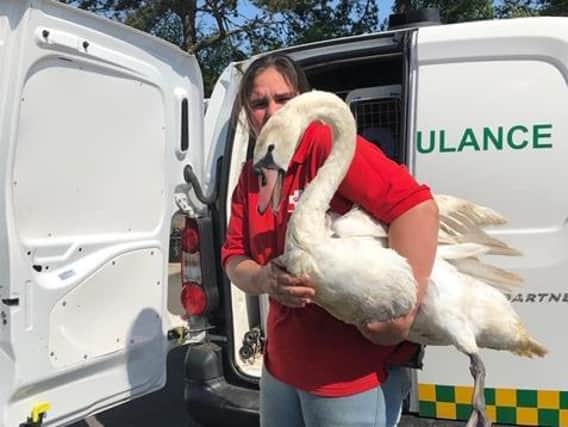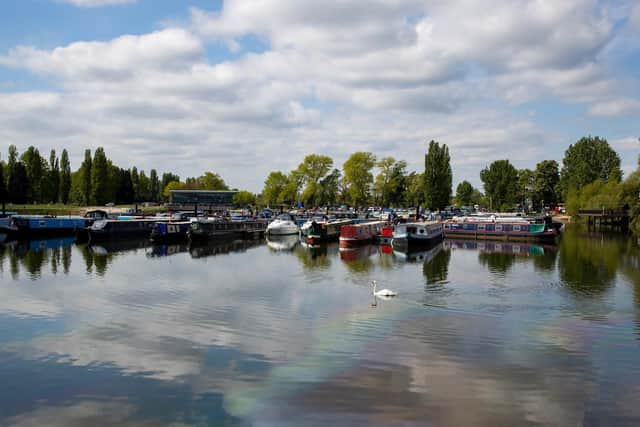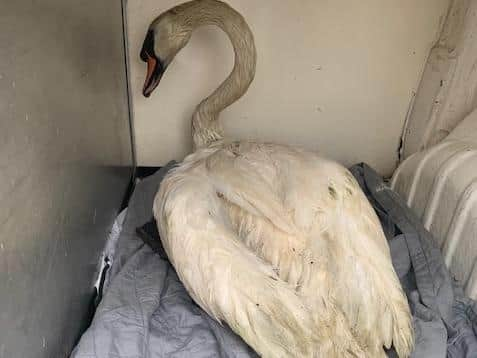RSPCA helps rescue effort to save 40 diesel-soaked swans on Northampton marina
This article contains affiliate links. We may earn a small commission on items purchased through this article, but that does not affect our editorial judgement.


The RSPCA and Animals in Need, in Little Irchester, have been busy rescuing dozens of water fowl off Billing marina after a large diesel spill, which took place on the weekend.
Animals In Need boss, Roy Marriott, has said more than five swans have already died as well as two ducklings, a grebe and goslings.
Advertisement
Hide AdAdvertisement
Hide AdHe said: "The biggest problem is the majority of the birds we have up there, half of them are underweight. They do need feeding but not on that stretch of water.
"We will do our best to get the rest off the marina, there's five or six people all geared up to get them off the lake and catch them if they can today."
Eleven swans have been transferred to the Swan Sanctuary in Middlesex, who have a dedicated unit to deal with birds contaminated by spills.
But sadly two of these birds have died and The Queen’s Swan Marker, David Barber, has been informed.
Advertisement
Hide AdAdvertisement
Hide AdThe Little Irchester-based charity is asking for donations, including swan pellets, duck pellets, mixed corn and old towels to be dropped off at their shelter.


The donations will help feed and clean the birds as they have to be bathed several times in fairly liquid to remove the stains from their feathers.
The Environment Agency are still on site after a four-day clean up operation but have not yet said where the oil leak has come from.
A spokesperson from the Environment Agency today (Wednesday) said: “The clean-up of the oil spill is ongoing. Contractors are working round-the-clock to ensure it is done efficiently and thoroughly.
Advertisement
Hide AdAdvertisement
Hide Ad"It Is not yet possible to say the size of the spill and investigations continue into the cause.


"We are working closely with the RSPCA, Public Health England and the Fire and Rescue Service.”
Northamptonshire Fire and Rescue Service was first called to the scene on Sunday to reports of a diesel leak in Crow Lane at about 7.40am where they repaired broken 'nozzles' on a diesel storage tank.
A spokeswoman for the RSPCA added: "We were contacted about a major diesel spillage at Billing Aquadrome in Northampton on Sunday (26 April). Our officers have been working to rescue as many birds affected by the oil spillage and have rescued 85 birds - which includes 42 swans.
Advertisement
Hide AdAdvertisement
Hide Ad“The birds have been taken to wildlife centres in the region where they will be cleaned and will then be released back into the wild.
“There are around 20 birds remaining which are being monitored.
“If oil is not removed from waterbirds it reduces the natural waterproofing in their plumage, leaving them at risk of dying from hypothermia - so it is vital that they are treated as soon as possible.
“If birds with oil on their feathers preen and try to clean themselves, they ingest the contaminants. Also while they are preening they are not feeding and may become weak so we have to act fast before this happens."
Advertisement
Hide AdAdvertisement
Hide AdAnyone with information about who dumped the oil should call The Environment Agency’s 24-hour hotline on 0800 80 70 60.
Concerns for a wild animal that has come into contact with oil or other contaminants should be reported to the RSPCA’s 24-hour emergency line on 0300 1234 999.